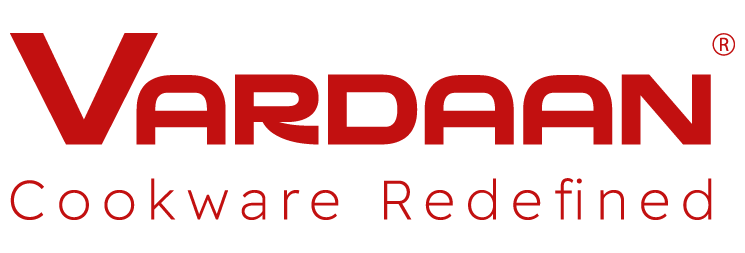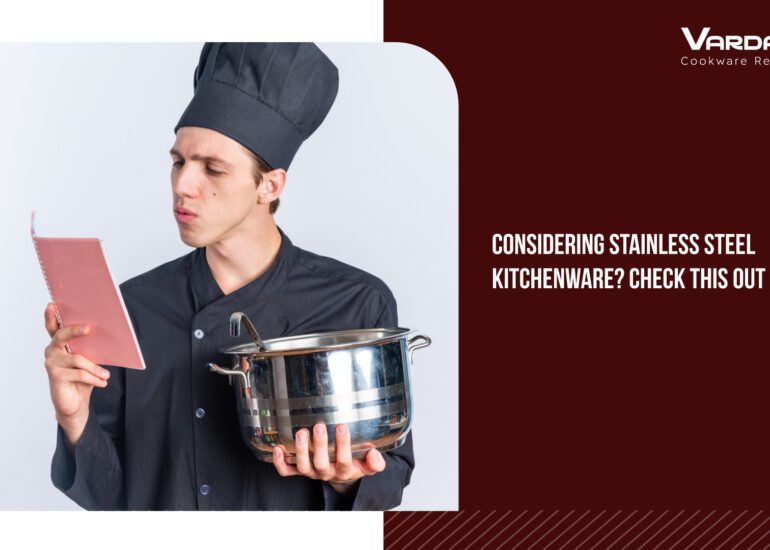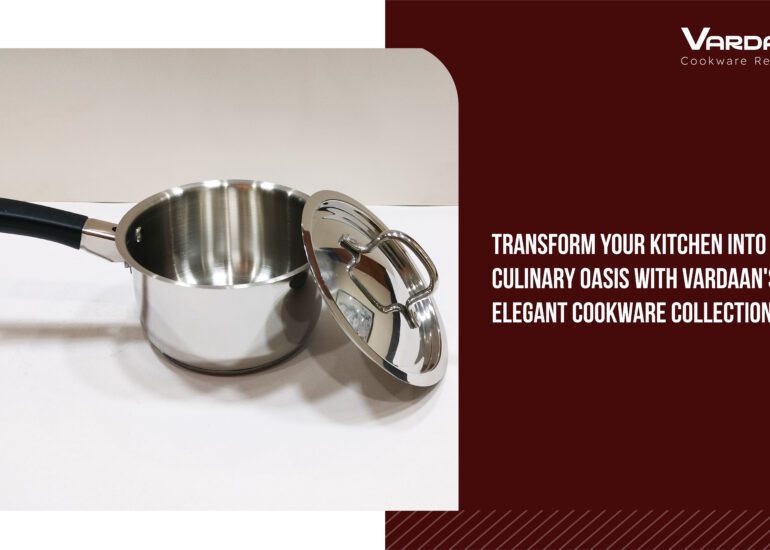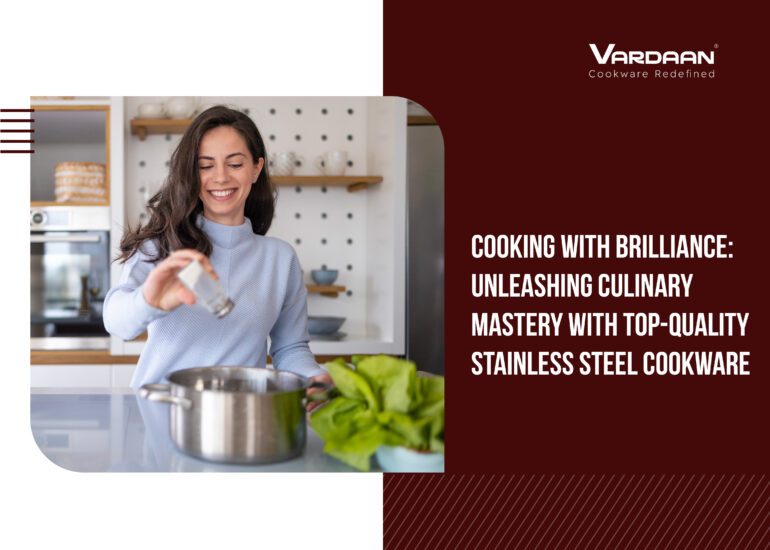Sustainability in kitchen practices has become a paramount concern for eco-conscious individuals worldwide. The choices we make in our kitchens, from the food we consume to the cookware we use, significantly impact our environment. Premium cookware essentials, particularly those crafted from stainless steel, play a crucial role in this green revolution. Stainless steel, known for its durability and recyclability, stands as a symbol of sustainable kitchen practices. By opting for premium stainless steel cookware, we not only ensure a longer lifespan of our kitchen tools, thereby reducing waste but also endorse a material that is often fully recyclable. This shift towards sustainable cooking tools, like high-quality stainless steel, reflects a broader commitment to environmental responsibility. It represents a conscious effort to minimize our carbon footprint, making our culinary practices more in harmony with nature. Thus, integrating premium cookware essentials made of stainless steel into our kitchens is not just a choice for superior quality but a step towards a more sustainable and eco-friendly lifestyle.
Why Choose Stainless Steel?
Durability: The longevity of stainless steel is one of its most commendable attributes, especially when it comes to kitchen essentials. A high-quality stainless steel cookware set is a prime example of this durability. Unlike other materials that might degrade or lose their functionality over time, stainless steel maintains its condition for years, if not decades. This enduring quality significantly reduces the need for frequent replacements.
When you invest in a stainless steel cookware set, you’re not just purchasing kitchen tools, you’re acquiring long-term culinary partners. The resistance of stainless steel to rust, corrosion, and staining means that these sets withstand the rigours of daily cooking without deteriorating in quality. This resilience translates to fewer purchases over time, as the need to replace worn-out or damaged pots and pans is greatly diminished.
In a world where consumerism often leads to excessive waste, choosing products like a stainless steel cookware set that can last a lifetime is a responsible and sustainable choice. It’s not just about the immediate benefits of having reliable cookware; it’s also about contributing to a larger effort to reduce waste and promote sustainability in our daily lives. Thus, stainless steel, with its impressive longevity, not only serves as a practical choice for chefs and home cooks but also as a statement of commitment to environmental stewardship.
Recyclability: Stainless steel’s recyclability is a key factor that elevates it to the forefront of sustainable cookware options. This material is not only renowned for its strength and durability but also for its remarkable ability to be recycled without any degradation in quality. Stainless steel cookware, when it reaches the end of its long life, can be completely melted down and reformed into new products. This cycle of reuse plays a crucial role in reducing waste.
In the context of sustainable cookware options, the recyclability of stainless steel offers a substantial environmental benefit. Every piece of stainless steel cookware that is recycled means one less item in our landfills and one less need for the raw extraction of materials. This is particularly significant given the current global concerns about resource depletion and waste management.
Furthermore, the process of recycling stainless steel requires less energy compared to producing new steel from raw materials, thus reducing the carbon footprint associated with its production. By choosing stainless steel cookware, consumers are not only choosing a high-quality, long-lasting product, but they are also contributing to a circular economy – one where products are reused and recycled, minimizing waste and conserving natural resources.
In summary, the recyclability of stainless steel greatly enhances its standing as a sustainable cookware option, aligning with the growing demand for eco-friendly products that support a more sustainable future.
Health Benefits: A key advantage of a stainless steel cookware set is its non-reactive nature, ensuring that no unwanted chemicals leach into food during cooking. This attribute is particularly crucial in today’s health-conscious world, where the purity of what we eat is as important as the nutrition it provides. Stainless steel, by its very composition, does not react with acidic or alkaline ingredients, a common concern with other materials like aluminium or non-stick coatings.
When using a stainless steel cookware set, you can confidently cook a wide variety of dishes, including those with tomatoes, vinegar, or citrus, without the worry of these acidic foods interacting with the material of your pots and pans. This inert quality of stainless steel is not just beneficial for maintaining the authentic taste and colour of your food, but it’s also vital for health reasons.
By preventing chemical leaching, stainless steel cookware sets ensure that no harmful substances contaminate your food. This aspect is particularly important for those who cook frequently and are concerned about long-term exposure to chemicals from cookware. In summary, the non-reactive nature of stainless steel cookware sets offers peace of mind, guaranteeing that the food you prepare is not only delicious but also safe and free from contamination.
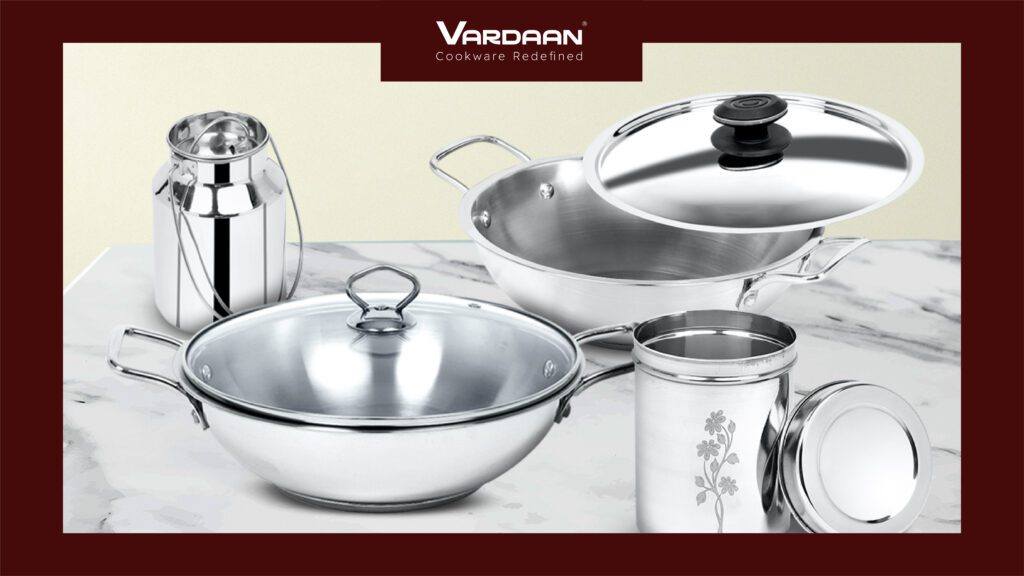
The Environmental Impact of Kitchenware
| FEATURE | STAINLESS STEEL | PLASTIC | ALUMINIUM | NON-STICK COATINGS |
| Durability | Highly durable, resistant to denting and warping. | Prone to melting and warping at high heat. | Prone to denting and scratching. | Susceptible to scratches and wears off over time. |
| Heat Conductivity | Good, especially with an aluminum or copper core. | Poor, not used for cooking surfaces. | Excellent, heats up quickly and evenly. | Good, but can deteriorate with the coating. |
| Non-Reactive Nature | Does not react with food, safe for acidic dishes. | Can leach chemicals at high temperatures. | Safe, but ingestion of aluminium over time is a health concern for some. | Generally safe, but older or low-quality coatings can release harmful fumes at high temperatures. |
| Maintenance | Easy to clean, dishwasher safe. | Easy to clean but not heat resistant. | Requires seasoning to prevent corrosion. | Requires careful cleaning to avoid damaging the coating. |
| Health and Safety | Safe, no harmful leaching. | Risk of chemical leaching at high temperatures. | Non-recyclable contributes to plastic pollution. | Non-recyclable and the production/release of chemicals can be harmful. |
| Environmental Impact | Highly recyclable, less environmental impact. | Non-recyclable, and the production/release of chemicals can be harmful. | Recyclable, but production is energy-intensive. | Potential health risks if overheated or the coating is scratched. |
| Lifespan | Long-lasting, often several decades | Short, especially with heat exposure | Moderate, but can decrease if not properly maintained. | Short to moderate, depending on the quality of the coating. |
This table illustrates that while each material has its unique properties and applications, stainless steel stands out as a versatile and sustainable choice among premium cookware essentials. It offers a balance of durability, safety, and environmental friendliness that is hard to match by other common cookware materials.
The carbon footprint associated with the production and disposal of kitchenware is a critical aspect when considering sustainable cookware options. Materials like stainless steel, aluminium, and non-stick coatings each have unique environmental impacts. Stainless steel, while energy-intensive to produce, offers a lower carbon footprint over its life cycle due to its durability and recyclability. Its long lifespan means less frequent replacement and, consequently, less frequent manufacturing. Aluminum, although highly conductive and lightweight, requires a significant amount of energy for production, contributing to a higher initial carbon footprint. However, its recyclability can partly mitigate this impact. Non-stick coatings, on the other hand, have a more complex environmental footprint. The production process of these coatings often involves chemicals that can be harmful if released into the environment. Additionally, the shorter lifespan of non-stick cookware leads to more frequent replacements and disposal, increasing its overall carbon footprint. In summary, when evaluating sustainable cookware options, it’s crucial to consider not just the immediate usability but also the long-term environmental impact of their production, use, and disposal. Stainless steel, with its balance of durability and recyclability, often emerges as a more sustainable choice in this regard.
Tips for Sustainable Cooking
Energy Efficiency
To optimize energy efficiency, using stainless steel cookware as part of your sustainable cookware options is key. Stainless steel is known for its poor heat conductivity compared to other metals like copper or aluminium. To save energy, preheat your stainless steel pans at a medium level before adding oil or food. This ensures even heat distribution, reducing cooking time and energy usage. Also, stainless steel retains heat well, so you can often turn off the burner earlier and let the residual heat finish the cooking. By adopting these practices, you can enhance the energy efficiency of stainless steel cookware, making it an even more sustainable choice in the kitchen.
Maintenance
- Regular Cleaning: Clean your stainless steel cookware after each use to prevent the buildup of food particles and staining. Use warm soapy water and a sponge or soft cloth.
- Avoid Abrasive Materials: To prevent scratches, avoid using steel wool or scouring powders. Opt for non-abrasive cleaners and soft sponges or cloths.
- Dry Immediately: After washing, dry your stainless steel cookware immediately to prevent water spots and rusting.
- Remove Stains Gently: For stubborn stains, use a paste of baking soda and water, apply gently, and rinse thoroughly.
- Use the Right Utensils: Use wooden, silicone, or plastic utensils instead of metal ones to avoid scratching the surface.
- Heat Control: Avoid overheating your stainless steel cookware, as it can cause discolouration and warping. Use medium to low heat for most cooking.
- Store Properly: Store your stainless steel cookware in a dry place and avoid stacking, which can cause scratches. If stacking is necessary, place a soft cloth between each piece.
- Polishing: For extra shine, polish with a stainless steel cleaner occasionally. This maintains the aesthetic appeal without harming the surface.
Multi-use Items
A stainless steel cookware set is an exemplary choice for those looking to streamline their kitchens. The versatility of stainless steel cookware is unmatched, allowing for a range of cooking techniques – from searing and sautéing to simmering and boiling. By investing in a comprehensive set, you reduce the need for multiple, material-specific pots and pans. This not only declutters your kitchen space but also contributes to a more sustainable lifestyle. With a stainless steel cookware set, you can efficiently prepare a wide variety of dishes, proving that a single, well-chosen set can meet most of your cooking needs while reducing redundancy and waste.
Choosing the Right Stainless Steel Products
When buying stainless steel kitchenware, it’s important to consider several factors to ensure you’re getting a high-quality, sustainable product. Here’s a guide to help you make an informed decision:
What to Look for in Stainless Steel Kitchenware
- Grade of Steel: Look for 304 or 18/10 stainless steel, which indicates a high level of nickel and chromium. This makes the cookware more rust-resistant and durable.
- Thickness: Heavier, thicker cookware provides better heat distribution and retention. Check for at least 18-gauge thickness.
- Core Material: For better heat conductivity, opt for stainless steel with an aluminum or copper core.
- Finish: A brushed or satin finish can hide scratches better than a mirror finish.
- Handles and Lids: Ensure handles are sturdy and securely attached. Lids should fit snugly.
- Compatibility: Check if the cookware is compatible with your stove type (including induction) and is oven-safe if needed.
Recommended Brands for Sustainability
- All-Clad: Known for high-quality, durable cookware that lasts for years.
- Vardaan Cookware: Renowned for its superior quality and longevity, this cookware is designed to endure years of use while maintaining its excellent condition.
- Cuisinart: Offers a range of eco-friendly stainless steel cookware.
- Calphalon: Their products are often made with recycled materials and are designed to last.
- GreenPan: Focuses on sustainable production and non-toxic, non-stick surfaces.
- Le Creuset: While known for cast iron, their stainless steel line is also durable and sustainably made.
Verifying Sustainability Claims
- Certifications: Look for certifications like ISO (International Organization for Standardization) for quality management and environmental impact.
- Company Policies: Research the brand’s environmental policies and commitments to sustainability.
- Recycled Content: Check if the product or its packaging uses recycled materials.
- Durability Claims: A longer lifespan means less waste. Look for warranties or guarantees that suggest long-term use.
- Customer Reviews: Often, customer experiences can give insight into the product’s durability and performance.
Remember, investing in high-quality, sustainable stainless steel kitchenware is not only a choice for your culinary needs but also a step towards a more eco-friendly lifestyle.
Beyond Cookware – Other Sustainable Kitchen Practices
Premium cookware essentials, like stainless steel, play a pivotal role in creating a sustainable kitchen, particularly when paired with practices like reducing food waste and sustainable food sourcing. By using high-quality stainless steel cookware, you can cook more efficiently and preserve the integrity of your ingredients, thereby minimizing food waste. This is crucial in a time when reducing waste is not just about saving food but also about conserving the resources used in its production.
Additionally, the choice of ingredients plays a significant role. Opting for sustainably sourced food – organic, local, and seasonal – complements the eco-friendly nature of stainless steel cookware. This combination of sustainable practices ensures that from the point of sourcing ingredients to the process of cooking them, your kitchen’s carbon footprint is significantly reduced.
Furthermore, complementing stainless steel with other sustainable materials like bamboo utensils, glass storage containers, and natural fiber dishcloths enhances your kitchen’s overall eco-friendliness. This holistic approach to kitchenware not only aligns with environmental values but also elevates the quality and sustainability of your cooking experience. Thus, premium cookware essentials like stainless steel, when used thoughtfully, become more than just tools; they become part of a comprehensive commitment to a greener, more sustainable way of living.
Conclusion
The importance of sustainable practices in the kitchen cannot be overstated. Our cooking habits and choices significantly impact the environment, from the resources we consume to the waste we generate. Adopting sustainable practices, such as using energy-efficient appliances, reducing food waste, and opting for eco-friendly cookware, can lead to a substantial decrease in our environmental footprint. This shift not only benefits the planet but also enhances our overall well-being by promoting healthier and more mindful cooking and eating habits.
To truly make a difference, it starts with the choices we make every day. One of the most impactful decisions is the type of cookware we use. Sustainable cookware, like that offered at Vardaan Cookware, is not just about cooking; it’s about a commitment to a more responsible and eco-conscious lifestyle. These cookware options are designed to last longer, reduce energy consumption, and minimize harmful impacts on the environment.
Embrace a greener kitchen today! Visit Vardaan Cookware to explore a range of sustainable cookware options. Make the switch to eco-friendly cookware and be a part of the movement towards a healthier planet. Your choice matters – start making a positive impact!
